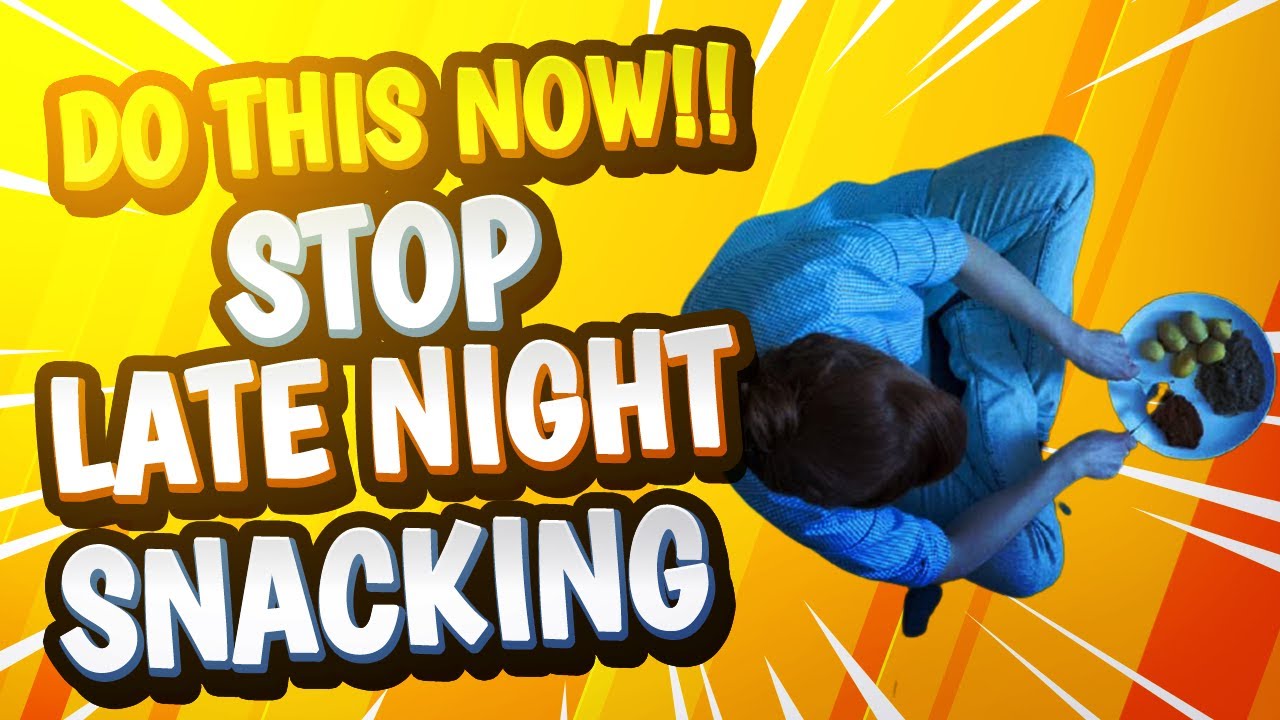
So You Want to Stop Snacking Late at Night?
So you want to stop snacking late at night? We’ve all been there – the fridge calling your name after the clock strikes ten, the urge to munch on something even though you know you shouldn’t. Late-night snacking can be a tough habit to break, but it’s not impossible.
Whether it’s stress, boredom, or simply a lack of willpower, late-night snacking can sabotage your health goals and leave you feeling sluggish in the morning. But fear not, because with a little bit of awareness, planning, and willpower, you can finally break free from the late-night munchies.
Understanding the root cause of your late-night snacking is key. Are you truly hungry, or are you simply seeking comfort or distraction? Identifying your triggers, whether it’s stress, boredom, or simply a lack of sleep, is the first step to overcoming the habit.
Once you understand why you’re reaching for those late-night snacks, you can start to implement strategies to break the cycle.
Strategies for Breaking the Late-Night Snacking Habit

Late-night snacking can be a tough habit to break, but it’s definitely possible! It often stems from boredom, stress, or simply being used to eating at a certain time. The key is to identify your triggers and develop strategies to manage them.
Late-night snacking can sabotage your fitness goals, just like hitting a workout plateau can derail your progress. To avoid those late-night cravings, focus on getting enough protein and healthy fats throughout the day, and try to stay active. And if you’re feeling stuck in your workouts, check out this great article on 6 ways to avoid workout plateaus and consistently progress.
Once you’re consistently pushing yourself, you’ll have more energy to resist those late-night munchies.
Identifying Your Triggers
Understanding why you snack at night is the first step towards breaking the habit. Keep a food diary for a week, noting what you eat, when you eat, and how you’re feeling. This will help you pinpoint the situations that lead to late-night snacking.
Late-night snacking can be a tough habit to break, but a strong core can help! When you’re feeling the urge to munch, try distracting yourself with a quick workout. This 10-minute no-equipment core workout will challenge your muscles and keep you busy, so you can focus on something else besides your cravings.
You’ll be surprised how much a little movement can help you stay on track!
Common triggers include:
- Boredom:If you find yourself snacking out of boredom, try finding an alternative activity to occupy your time.
- Stress:If stress is your trigger, explore healthy coping mechanisms like exercise, meditation, or spending time with loved ones.
- Hunger:If you’re genuinely hungry, try having a light and balanced dinner that keeps you full until bedtime.
- Habit:If it’s simply a habit, try to break the routine by finding other things to do at night, like reading or taking a relaxing bath.
Creating a Plan
Once you know your triggers, you can create a plan to overcome them. Here’s a step-by-step guide:
- Set realistic goals:Don’t try to eliminate late-night snacking completely overnight. Start by reducing the frequency or the amount you eat.
- Identify your go-to snacks:What are the snacks you crave the most? Once you know, try replacing them with healthier options.
- Prepare for cravings:Anticipate your cravings and have healthier alternatives readily available. This could include fruit, vegetables, or a small handful of nuts.
- Find alternative activities:When you feel the urge to snack, engage in an activity you enjoy, like reading, taking a walk, or spending time with family.
- Practice mindfulness:Pay attention to your body’s signals and distinguish between true hunger and emotional eating.
Success Stories
Many people have successfully overcome late-night snacking. One individual, who used to eat a whole bag of chips before bed, started by replacing the chips with a piece of fruit. Gradually, they reduced the amount of fruit they ate until they no longer felt the need to snack at night.
Late-night snacking is a tough habit to break, but it can be worth it for your health. You might be surprised to learn that exercise might beat blood pressure meds according to science , and that’s just one benefit of a healthier lifestyle.
Getting regular exercise and eating a balanced diet can help you feel better overall, which can make it easier to resist those late-night cravings.
Another individual found that drinking a glass of water before bed helped to curb their cravings.
Sleep Hygiene and Late-Night Snacking

The connection between poor sleep hygiene and late-night snacking is undeniable. When we don’t prioritize quality sleep, our bodies crave more energy, often leading to increased hunger and late-night snacking.
Improving Sleep Quality to Reduce Late-Night Cravings, So you want to stop snacking late at night
Implementing good sleep hygiene practices can significantly reduce late-night cravings. Here are some tips:
- Establish a consistent sleep schedule: Going to bed and waking up at the same time, even on weekends, helps regulate your body’s natural sleep-wake cycle, reducing the urge to snack late at night.
- Create a relaxing bedtime routine: Wind down an hour or two before bed by engaging in calming activities like reading, taking a warm bath, or listening to soothing music. This helps signal to your body that it’s time to sleep.
- Optimize your sleep environment: Make sure your bedroom is dark, quiet, and cool. A comfortable temperature and a blackout curtain can significantly improve sleep quality.
- Avoid caffeine and alcohol before bed: These substances can disrupt your sleep cycle and increase the likelihood of late-night snacking.
- Regular exercise: Engaging in regular physical activity can improve sleep quality, but avoid exercising too close to bedtime, as it can make it harder to fall asleep.
Establishing a Regular Sleep Routine to Control Snacking Habits
A consistent sleep routine is crucial for controlling snacking habits.
- Wake up at the same time each day: This helps regulate your body’s natural sleep-wake cycle, making it easier to fall asleep at a reasonable hour.
- Avoid napping during the day: While short naps can be beneficial, long or frequent naps can disrupt your sleep schedule, leading to late-night snacking.
- Expose yourself to sunlight in the morning: This helps reset your body clock and improve sleep quality.
Final Wrap-Up: So You Want To Stop Snacking Late At Night

Breaking the late-night snacking habit takes time and effort, but it’s definitely achievable. By understanding your triggers, implementing healthy strategies, and prioritizing your sleep, you can finally reclaim control of your late-night cravings and wake up feeling refreshed and energized.
Remember, you’re not alone in this journey. There are countless resources available to help you along the way, and with a little dedication, you can achieve your goals. So go ahead, take charge of your late-night habits and embrace a healthier, happier you!





